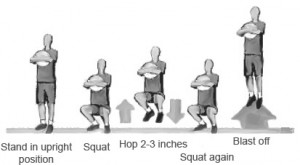
After a long and tiring day when I reached home late at night, I had this good idea to get a head massage to be able to sleep well. I started massaging my head gently with oil. After a while I was shocked to see a mop of hair in my hand. I was losing a lot of hair…
More often than not, we are unaware of hair loss. We are so busy with our daily routine and hectic work schedules that we do not pay attention to these matters. However, let me tell you that it is very important to be aware of everything that is happening within us. We need to understand the reason for hair loss. Anybody can experience hair loss. It is not peculiar to men alone. Women and children can also go through hair loss.
Everyone loses hair. It is normal to lose about 50-100 hair every day. But, if you see bald patches or lots of thinning, you may be experiencing hair loss. There are many causes of hair loss. Women may notice hair loss after giving birth. People under lot of stress can see noticeable hair loss. Some diseases and medical treatments can cause hair loss. Even how you style and care for your hair can cause hair loss.
It may be temporary or permanent, and the most common cause of hair loss is a medical condition called hereditary hair loss. Hair loss can happen in many different ways, depending on the problem that’s causing it. It can come suddenly or gradually and affect your scalp.
Let us take a detailed look at the some of the reasons that cause hair loss:
- Hormonal Changes: The most common hair loss is a hereditary condition called male pattern baldness or female pattern baldness. Genetically susceptible people and certain sex hormones trigger a particular pattern of permanent hair loss. Most common in men, this type of hair thinning can begin as early as puberty. Hormonal changes and imbalance can also cause temporary hair loss. This could be found in women due to child birth or the onset of menopause.
- Medical Conditions that can lead to hair loss are thyroid problems, skin infections or other skin disorders. Hair loss can also be caused by Alopecia Areata, which is a condition that starts suddenly and causes patchy hair loss in children and young adults. This condition may result in complete baldness (Alopecia Totalis) but in about 90% of people with the condition, the hair returns within a few years.
- Medications can also cause hair loss. Drugs used to treat cancer, arthritis, depression, heart problems and blood pressure are some of them.
- Physical or Mental Shock: Many people experience a general thinning of hair several months after a physical or emotional shock.
- Hair Pulling Disorder: Mental illness causes people to have an irresistible urge to pull out their hair whether it’s from the scalp, eyebrows or other areas of the body. Hair pulling from scalp often leaves patchy bald spots on the head.
- Certain Hair Styles: Traction hair loss can occur if the hair is pulled too tightly into hairstyles such as pigtails and cornrows.
For some types of hair loss, hair may grow without any treatment while for other types of hair loss treatment may help the hair grow back.
It is very important to understand the causes of hair loss. You should make a note of all the possible changes that happen in your day to day life. Understand the cause and work towards it. Few tips such as eating healthy, nutritional and balanced food may help. Avoid tight hairstyles and avoid compulsive twisting, rubbing or pulling of your hair.
Here are a few tips that I have chalked out that will help you maintain healthy hair. Certain foods in our diet will keep your scalp healthy. Foods that contain proteins, iron, silica and zinc help preventing hair loss.
- Protein: Hair is primarily made of protein and therefore, it makes sense to eat a protein rich diet. Stick to leaner proteins such as fish, chicken, calf’s liver, low fat cheese, eggs, almonds, beans and yogurt. Soy milk and tofu are also smart options to add to your diet as they are high in protein and low in bad fats.
- Iron: Iron plays a key role in manufacturing hemoglobin, the part of blood that carries oxygen to your body‘s organs and tissues. Adding more iron to your diet doesn’t mean you have to feast on liver, day in and day out, but when you are craving for something sweet, remember that dried fruits and cherry juice are packed with iron. Try eggs, dates, raisins, dark green leafy vegetables such as Kale and whole grain cereals. Vitamin C improves the absorption of iron, so fruits such as orange, strawberries and lemons should be in your grocery list of foods that prevent hair loss.
- Silica: Add silica to your daily menu and see the difference because body uses silica to help it absorb vitamins and minerals. If you are not consuming silica, eating vitamins might not help much. Silica can be found in bean, sprouts and skin of cucumber. You will also find it in red and green peppers and potatoes.
- Zinc: Many men who suffer from hair loss are found to have zinc deficiencies. Zinc plays a key role in many of the body’s functions, from cell reproduction to hormonal balance, which in turn affects hair growth. Zinc manages the glands that attach to your hair follicles. Eat Zinc-heavy foods such as red meats, poultry, mussels, shrimp, nuts, and oysters.
Just as your overall health will improve from eating a balanced diet, so should the health of your hair. Do not eat things that speed up hair loss. You may be experiencing a thinning on top already, but you can counteract this problem (or at least slow it down) by eating from every food group daily — concentrating on foods that are rich in protein, iron, silica, and zinc.














